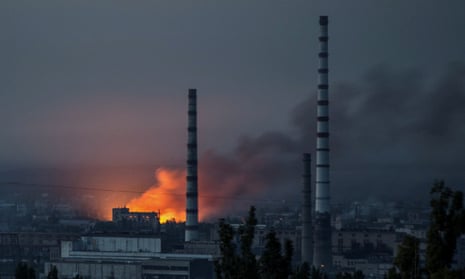Extract from The Guardian

This is unsurprising when we see how poorly the Russian army is performing, which presumably Putin is also seeing. Putin’s response has been to appoint General “Armageddon” Surovikin as his overall commander in Ukraine, and the dirty bomb allegation is right out of Surovkin’s playbook.
The “dirty” bomb concept is a complete chimera – a fantasy designed to terrify people in Ukraine and allow Russia to escalate its unconventional warfare. The claim has been dismissed by France, Britain and the US, and the UN is sending inspectors at Ukraine’s request to two nuclear sites to prove it is baseless . There has never been a successful dirty bomb attack. But their psychological impact is 10 times greater than their physical effect, and Putin must be hoping this will break the will of the Ukrainians.
Russia tested and developed its unconventional warfare concept in Syria. This included the use of chemical weapons, which the Assad regime turned to whenever defeat seemed imminent. The rebels were about to storm Damascus in August 2013 when Assad dropped the deadly nerve agent sarin on the suburb of Ghouta, killing more than 1,000 people and stopping the advance in its tracks. He also broke the six-year conventional siege of Douma with chlorine barrel bombs in 2018. Weapons like chlorine and dirty bombs are morbidly effective owing to the terror they impart, and must be fully outlawed by the United Nations and the free world.
Though I believe that global nuclear warfare is very unlikely, anything less is possible, especially if Putin’s vital territory of Crimea is threatened, which is looking increasingly likely. In unconventional warfare there is very much a “dirty” nuclear threat, which could be almost as devastating as a battlefield nuclear weapon, by turning nuclear power stations into improvised nuclear weapons – in essence a massive “dirty” bomb.
In theory the Geneva Conventions and the rules of war outlaw unconventional warfare – but Putin and his generals seem more than willing to ignore both. The new prime minister must, with Nato allies, ensure that Putin is never able to reach for his most devastating unconventional weapons.
Hamish de Bretton-Gordon is a former commander in UK and Nato CBRN forces, a chemical and nuclear weapons expert and an adviser to the Union of Syrian Medical Charities
No comments:
Post a Comment